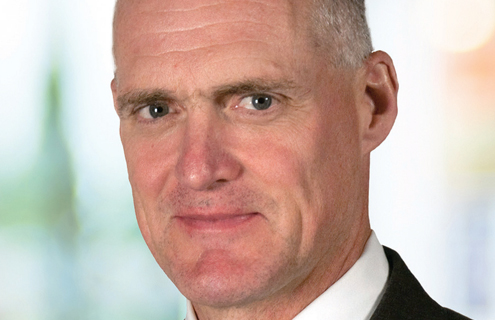DTCC
Robert Garrison
21 July 2016
The frenzy around blockchain has been unprecedented, but is it a disruptive force on the verge of replacing legacy infrastructures, or will its effect be only marginal? Robert Garrison, DTCC’s chief information officer, explains
 Image: Shutterstock
Image: Shutterstock
Distributed ledger technology (DLT) has generated an unprecedented degree of excitement and interest in financial services in a very short amount of time. Can the technology really live up to the hype?
Maybe, that is what we are going to find out. The entire industry, as well as people outside of it, is looking into the application of DLT at the moment, trying to assess the use cases of the technology, not only for financial services, but for all industries.
We’re going to learn a lot over the course of the next few years. One of the things we need to be concerned about, however, is the way in which DLT will be a continuation of what the industry has built over the course of the last 40 years, which has been a really stable, efficient processing platform—even if not quite as optimised as it could be. It runs every day with consistent efficiency, which is what we need to maintain going forward as we try to build bridges and leverage the potential of DLT.
Most people outside the industry make various claims about how disruptive this technology can be. Those arguing for an overwhelming change are likely unaware of, or do not fully grasp, the inner workings and the challenges the industry has faced over the course of the past 40 years, or the regulatory environment we operate in to make sure the assets, the clients and the investments are safe and secure and, most importantly, are being processed every day.
I think we’ll get there eventually but we have to keep in mind the complexities of the industry. These complexities need to be fully understood before we can appreciate how some DLT opportunities can be realised.
The potential of DLT to disrupt financial services is often equated with Airbnb and Uber and the disruptive effect they had on their respective industries. Do you think DLT can really do that to financial services?
My guess is that we’re going to find this out more quickly than expected. We have already developed a lot of use cases for DLT. We did an exercise where we came up with over 25 use cases for DLT that we thought the industry could benefit from, and we’re moving forward with a couple of those. DTCC works with the industry to progress some of these use cases and to help realise the opportunities they will create. I think we’ll learn sooner rather than later about just how disruptive this technology will be.
What is DTCC doing to advance discussions and experiments on DLT solutions?
We’ve formed an Office of Blockchain Technologies Strategies and Research, which is a group made of both technologists and business people. We issued a whitepaper on blockchain in January this year and in March we held a blockchain symposium, which was attend by a lot of established industry experts and speakers. Most recently, we announced that we’re working on a pilot project, testing blockchain for credit derivatives with a number of banks and other financial firms. We are also working on a blockchain solution for repo transactions with Digital Asset Holdings. We have made a small investment in the firm and we sit on its board.
One thing that really helped us internally was the creation of a technology lab, which we use to experiment with the various aspects of the technology, and which enables us to learn every day about how that technology works. We have also joined the Linux Foundation and we are participating in its Hyperledger project, a cross-industry collaborative effort to build and sustain an open distributed ledger platform that can be used more broadly by not only our industry, but other industries, too.
← Previous interview
HSBC Securities Services
Florence Lee
Next interview →
SWIFT
Juliette Kennel
 Image: Shutterstock
Image: Shutterstock 